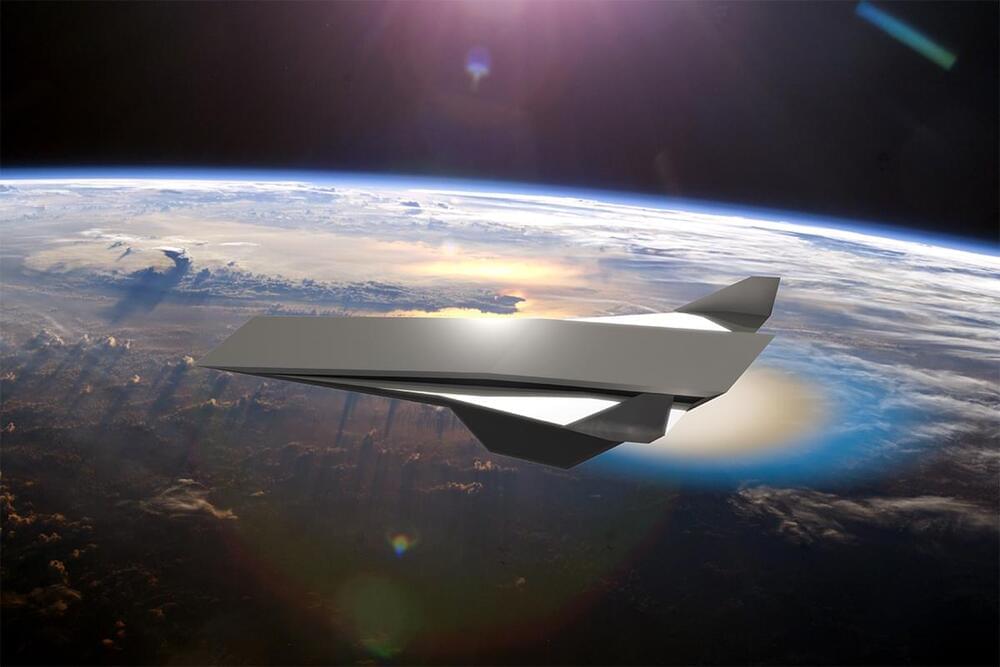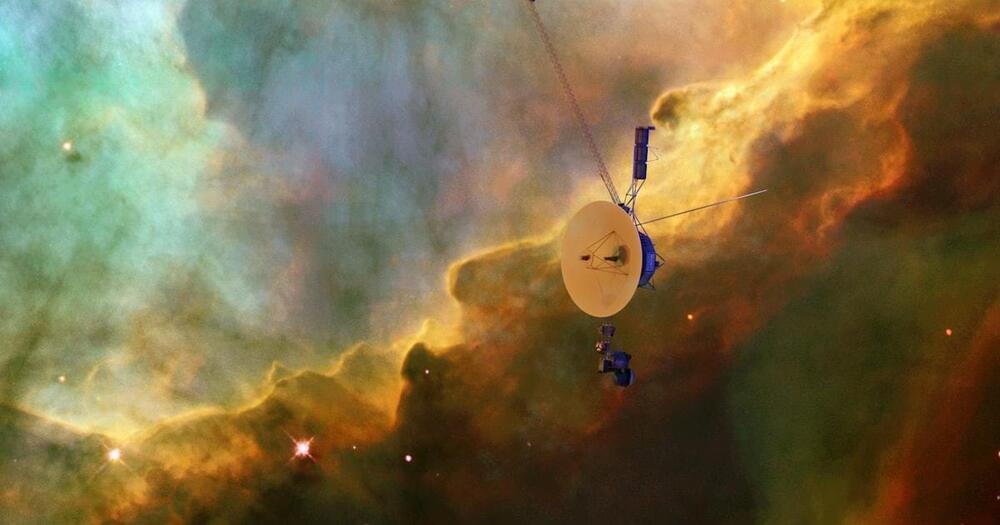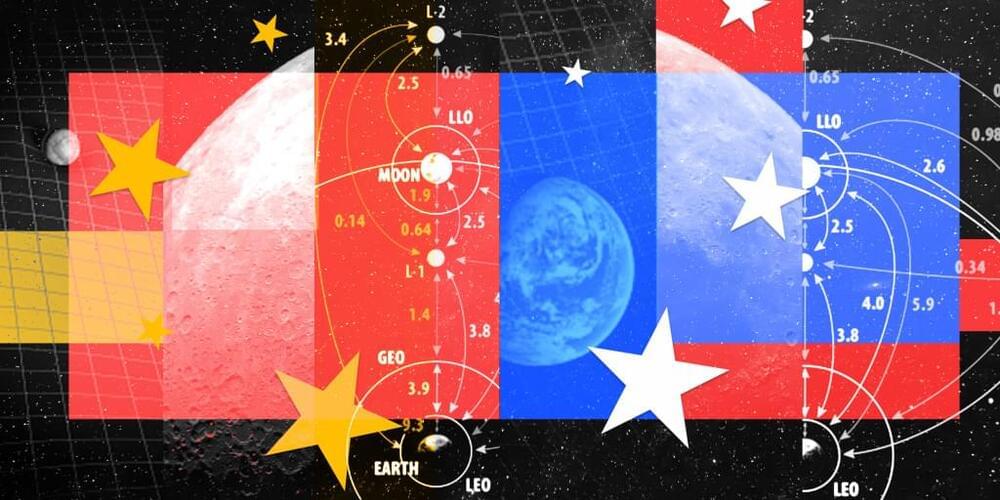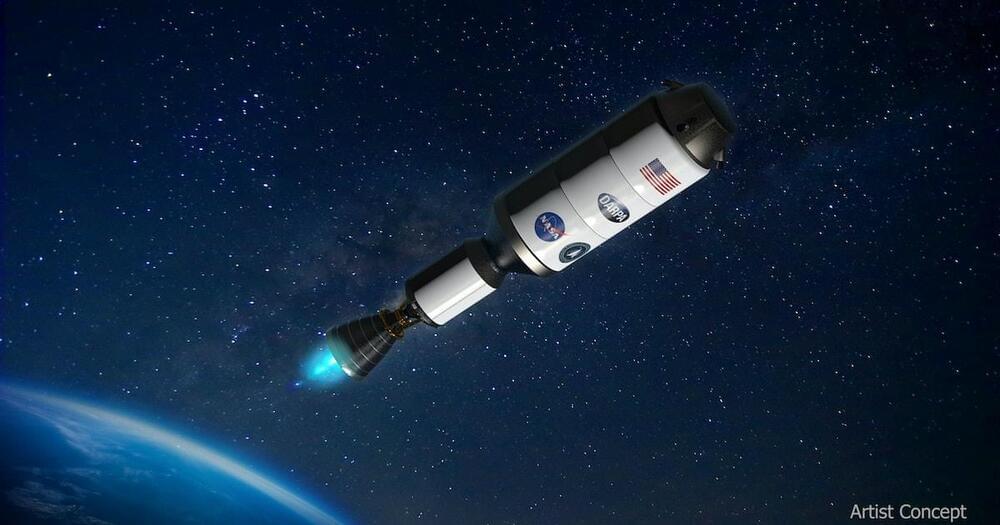This is the world’s first fully reusable spaceplane that can take off and land from a runway. Aerospace firm Radian Aerospace claim its spaceplane will completely transform travel both in space and around the world. The aircraft, named Radian One, will be a fully reusable, single stage to orbit vehicle that can be turned around and reflown within 48 hours. The firm has raised $27.5 million in seed funding but experts predict it will cost well over $1 billion to develop. Once in orbit, missions could range from once around the Earth, in about 90 minutes, to a full five day cruise. When returning to the Earth, wings allow it to land smoothly on any 10,000ft runway. This would allow it to land at most of the major UK airports. The firm says it will be able to carry out a wide range of functions once in space including taking people and light cargo to low Earth orbit.
Category: space travel – Page 146

Flying at Speeds up to Mach 17 Could Become Reality
University of Central Florida researchers are building on their technology that could pave the way for hypersonic flight, such as travel from New York to Los Angeles in under 30 minutes.
In their latest research published Monday in the journal Proceedings of the National Academy of Sciences, the researchers discovered a way to stabilize the detonation needed for hypersonic propulsion by creating a special hypersonic reaction chamber for jet engines.
The UCF-developed propulsion system could allow for flight speeds of Mach 6 to 17 and would have applications in air and space travel.

We Don’t Need To Go To Mars
Buckle up, this one is fun: Maciej Cegowski has begun what promises to be a multi-part essay arguing against a crewed mission to Mars. It’s called “Why Not Mars,” it’s 8,000 words long, with 66 footnotes, and it sings. I’m not even sure I agree, but I enjoy the hell out of it.
The goal of this essay is to persuade you that we shouldnt send human beings to Mars, at least not anytime soon. Landing on Mars with existing technology would be a destructive, wasteful stunt whose only legacy would be to ruin the greatest natural history experiment in the Solar System. It would no more open a new era of spaceflight than a Phoenician sailor crossing the Atlantic in 500 B.C. would have opened up the New World. And it wouldnt even be that much fun.
A few choice lines:


The space between Earth and the moon is about to get a little more crowded
With multiple nations and private companies now setting their sights on missions to the moon, experts say cislunar space — the area between Earth and the moon — could become strategically important, potentially opening up competition over resources and positioning, and even sparking geopolitical conflicts.
The Dark Side of Artificial Intelligence: Dystopian Future Inevitable?
As technology continues to advance at an exponential rate, it’s hard to ignore the nagging feeling that we may be heading toward a dystopian future. In this video, we’ll be examining the potential dangers of artificial intelligence and machine learning; how they could lead us down a dark path if left unchecked. From the displacement of human workers to the loss of privacy and control, the repercussions of our reliance on technology are far-reaching and potentially disastrous.
In today’s video we look at The Dark Side of Artificial Intelligence: Dystopian Future Inevitable?…Keep watching to see artificial intelligence and the bad side of artificial intelligence and the dystopian future and artificial intelligence tutorial and the artificial intelligence movie and andrew yang artificial intelligence and the artificial general intelligence and artificial intelligence podcast and the artificial intelligence 2019 and artificial intelligence 2021and the artificial intelligence: mankind’s last invention and what is artificial intelligence and is artificial intelligence dangerous and how does artificial intelligence work and the futureSubscribe for Artificial Intelligence, Data Science, and Crypto. Inspired by Tech Vision, Moconomy, and Digital Engine. Inspired by Get RICH in the A.I. Revolution (2023)Inspired by Why Artists are Fed Up with AI Art. Inspired by What ChatGPT Could Mean for the Future of Artificial IntelligenceInspired by The Real Danger Of ChatGPTInspired by End Game — Technology | Dystopian Future | Machine Learning | Artificial IntelligenceAlso check out: https://youtu.be/POFaQNNQVLMOn Technology Titan we will go through Artificial Intelligence, Crypto, and SpaceX. Stay tuned for the latest Data Science, Tech, and Stocks. Click here to subscribe: bit.ly/3WvpXbT
The Outward Urge Has NASA Looking at New Methods of Propulsion
Nuclear thermal propulsion and the rotating detonation rocket are two new engine technologies NASA hopes to use to get to Mars and further.
To Mars, nuclear rockets can cut the time in half. And for in-space propulsion, NASA demonstrates a fast-speed rotating detonation rocket.
Rotating Detonation Rocket Engine: NASA’s Revolutionary Propulsion Design for Deep Space Missions
NASA takes its first steps toward establishing a long-term presence on the Moon’s surface, a team of propulsion development engineers at NASA have developed and tested NASA’s first full-scale rotating detonation rocket engine, or RDRE, an advanced rocket engine design that could significantly change how future propulsion systems are built.
The RDRE differs from a traditional rocket engine by generating thrust using a supersonic combustion phenomenon known as a detonation. This design produces more power while using less fuel than today’s propulsion systems and has the potential to power both human landers and interplanetary vehicles to deep space destinations, such as the Moon and Mars.
Mars is the second smallest planet in our solar system and the fourth planet from the sun. It is a dusty, cold, desert world with a very thin atmosphere. Iron oxide is prevalent in Mars’ surface resulting in its reddish color and its nickname “The Red Planet.” Mars’ name comes from the Roman god of war.

NASA successfully tests new engine for deep space exploration
NASA announced that its engineers have developed and tested the agency’s first full-scale rotating detonation rocket engine (RDRE).
The agency said that the design could significantly change how future propulsion systems are built. The supersonic rocket engine uses detonation, with the design producing more power while using less fuel than today’s propulsion systems.
It has the potential to power both human landers and interplanetary vehicles to deep space destinations, like the moon or Mars.
